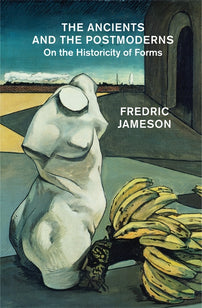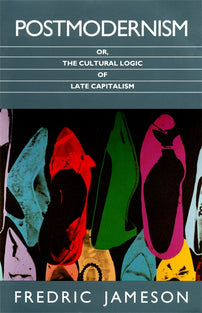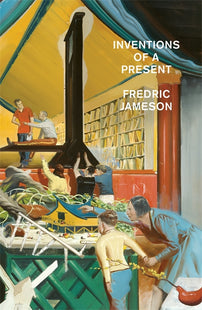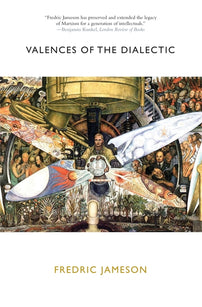Utopian impulses and the pursuit of totality
In this instalment of our Jameson at 90 series, Ian Balfour returns to Fredric Jameson's The Ancients and the Postmoderns, reflecting on Jameson's career-spanning occupation with totality.

Instead of time, there will be lateness.
David Berman (Silver Jews)
There has never been any particular Quarrel of the Ancients and the Postmoderns on the order of that between the Ancients and the Moderns that organized a lot of criticism from the Baroque—called here “the first great secular era”—to the early 19th century. And “Ancients” here doesn’t exactly mean what most people understand by the term. The collection begins, in the essay on Rubens, like this: “Modernism, Alexander Kluge observes somewhere, is our classicism, our classical antiquity.” We are perhaps used to thinking of the modern and modernity as moving targets—the term dates to the 5th century—but here the classical and antiquity are on the move too. Because history.
This dazzling late collection of clustered essays in fairly late style moves with ease and authority from film to “classical” music, science fiction to television, high culture to pop (but sometimes in one and the same essay, as with “Transcendence and Movie Music in Mahler”). The cultural objects range from the 17th century to the recent past that is still somehow present and the reach is more global than not: the films for one dossier of the volume come mainly from Poland, Russia/Soviet Union, and Greece, i.e., not the most usual suspects. Jameson is blessed not just with a high but an absorptive intelligence and a preternaturally good memory that puts him in a great position to do dialectical justice to the dialectical states of affairs. An inveterate attendee of film festivals, he actually has seen everything by Sokurov before writing his compelling essay on history and elegy in that director’s work when only other specialists would have a similar completist sense of the oeuvre. Loads of us have the will to do dialectical criticism without the commensurate wherewithal but Jameson, not constrained by expertism or a period or a national or even a disciplinary specialty, is in a position to attend to and illuminate pertinent relations many would not recognize of their own accord. This very disposition allows him also to attend to matters in relation to his perhaps favourite and still largely unfashionable topic—not just a topic—of totality.
[book-strip index="1"]
If you read the title “Altman and the National-Popular; or, Misery and Totality?” you could be forgiven for thinking the essay to come would be on Nashville, where the scene of country music, embroiled even in presidential politics, could be seen as an allegory for the whole “country.” Or maybe Mash in the enveloping shadow of the Vietnam War. But no. Instead, we are treated to a virtuoso reading of Short Cuts, an assemblage of adaptations of a bunch of Raymond Carver short stories whose distinct—if somewhat overlapping—character(s) and story lines would seem to preclude totalization. And all the more so when the scene of the film is just a half dozen neighbourhoods in the not very characteristic city of Los Angeles, strikingly transposed from Carver’s Northwest setting. Even here Jameson is able to show how the action and the acting and the filmmaking force one to conjure up a not-so-given totality that must undergird things. Not an organic totality, to be sure, as he specifies, but something like what he identifies as Lacan’s pas-tout or maybe what Sartre calls a “phantom totality.”
[book-strip index="2"]
Baltimore is an altogether different city, the site of The Wire that is the subject of one of the volume’s great essays. Here, despite the show being grounded as explicitly and resolutely as can be in the one and only Baltimore, Jameson can show, from the visual and discursive evidence, how “Baltimore” as such “doesn’t exist.” Reduced in its setting to some corners, some projects, some buildings, Baltimore, such as it is, and its interacting characters are analyzed—in addition to the expected categories of race and various sorts of immiseration—in terms of a different sort of not-so-present totality: of money, of post-container logic and logistics, and of a dying port. It’s here that the unexpected term in the title: “Realism and Utopia in The Wire” can be justified. In the grand and influential tradition of “Reification and Utopia in Mass Culture,” Jameson can tease out (but could anyone else?) the utopian impulses of the “projects”—as with the dream of the revitalization of the port—in an otherwise mostly bleak space that counts as what in Faust is called “the little world.”
Space doesn’t permit coming close to conveying the riches of this volume, whose arguments and sentences and digressions offer all kinds of insights on one page after another. To single out one last essay, I’d say the piece on Gibson’s Neuromancer is so distinctively good as to tempt one to summon up the understandably debunked notion of the “ideal reader.”
See all works by Fredric Jameson here. His new book, Inventions of a Present: The Novel in its Crisis of Globalization is out on May 7.
[book-strip index="3"]




